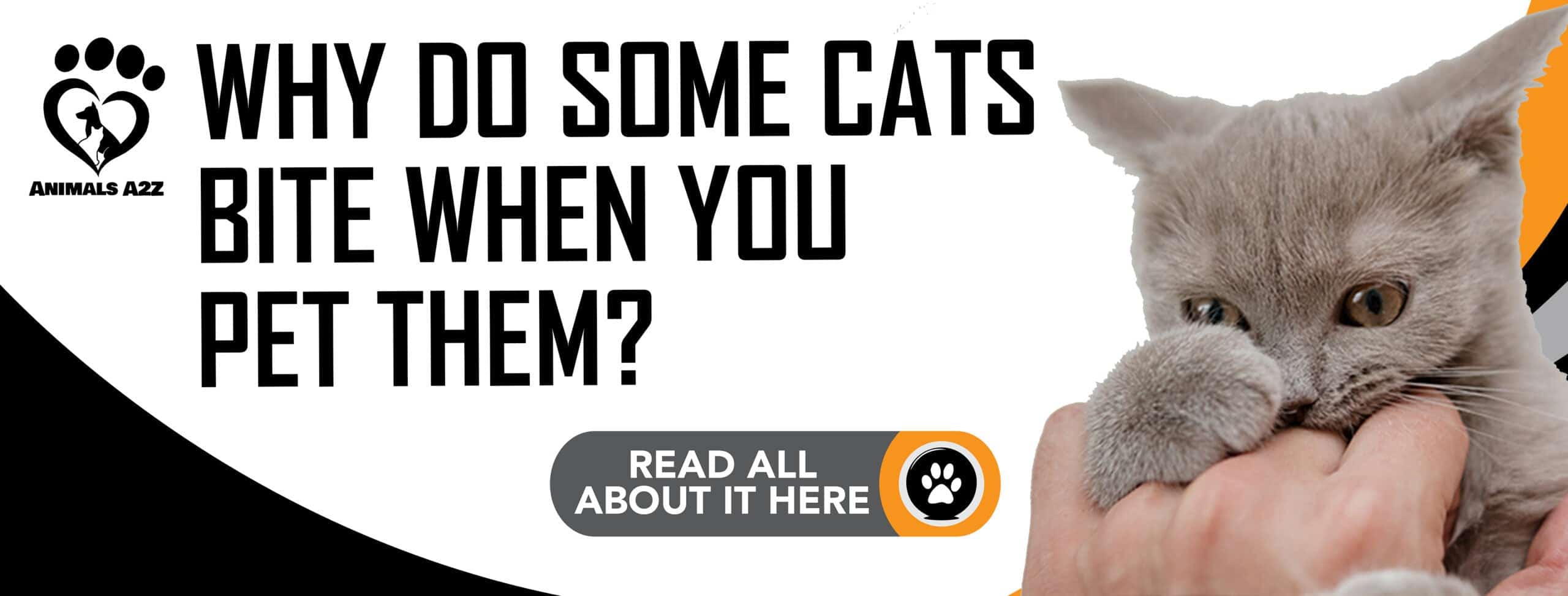We all like to show our love and attention to our fur pets. As feline parents, we take pleasure in enjoying our cat’s playfulness and fondness. However, just like humans, cats, too, have their own personalities and temperaments.
If you happen to experience an out of the blue bite and cat claw during pet time, you might find it annoying. If you have always wondered why a cat unexpectedly bites you while petting, below are some of the common reasons why.
Table of Contents
Some cats bite if they are overstimulated
In some cases, cats bite while they are being petted, because they are overstimulated. If a lot of stuff is going on, maybe a lot of repetitive petting, your cat might react with a bite. Your cat is biting to tell you that too much is going on.
The biting does not mean your cat doesn’t love you. Read more about if a cat feels your love.
Common causes of biting in cats?
Cats are territorial and would often like to urinate and defecate in the same places. This is primarily because the scent is an essential way for them to communicate with other cats or with you that they have claimed this territory.
If you happen to notice a behavioral change in your cat, it is because they feel anxious or worried about losing dominance over their areas.
House-soiling cats are a perfect example of territorial worry. When your cat displays problem behaviors such as urinating or pooping outside of its litter box, it is marking or spraying the area. Such behavioral change doesn’t often appear as a significant problem for us as humans.
In fact, we might rule out the incidence as something of poor judgment on our cat’s behalf. However, if we’re not sensitive enough to notice the cat’s hostile or violent behavior towards us early enough, cats often resort to aggression. Simply because aggression is a typical behavioral pattern known to us humans.
When this happens, we get more direct communication from our pets. When cats bite us during our petting time, our first line of thoughts is to understand why they are showing resentment towards us.
Nevertheless, when this happens, it is vital to take note that we must never physically punish the cat. Instead, pet owners must address the root causes of aggression. For instance, it’s fear of losing its territorial dominance.
Commonly Asked Questions
What conditions affect a cat’s behavior?
Young adult cats and senior cats tend to vary in diseases or conditions. The following are some conditions which need to be checked out:
1. Bladder infection is a common problem among cats. A significant majority of feline females are more affected by bladder problems than male cats. Age also plays as a vital differentiator. Senior cats typically develop bladder problems over adult cats because of age-related health concerns. Other related health conditions related to bladder infection include diabetes mellitus, chronic kidney disease, and hyperthyroidism.
2. A bladder tumor is another serious cat condition that dramatically affects your cat’s temperament. If your feline best friend is suddenly more grumpy than usual, you might want to schedule a vet visit soon. Cats with the condition find severe strain when urinating. Often as well, they develop arthritis due to reduced kidney function. So, you must make adjustments to your litter box and ensure that it’s more accommodating to your sick or aging cat. This is because cats with such conditions cannot squat properly or jump into their designated litter box.
Can you prevent aggression in cats?
While it’s important to rule out medical conditions that can cause cat aggression. You must also focus on resolving your cat’s behavioral concerns. If you are sure that your cat is healthy but is still biting, scratching, or pouncing on you, you might have a cat behavior aggression problem. Don’t despair: there are plenty of ways to deal with this.
1. Promote pleasant early socialization for your cats, especially at a young age. Studies show that kittens who were nurtured by their mothers at the weaning stage tend to have a lower chance of developing petting-induced aggression. This is because, at such a young age, the kitten can already differentiate between play-bites and attack.
2. Avoid overstimulation during playtime as sometimes your cats may feel they’ve had too much attention from you. When the cat is tired or annoyed, it may bite you to signal it wants to be left alone and is no longer interested in playing. Continuous strokes during petting may give them a sense of an irritating feeling. Therefore, biting you is their way of saying back off.
How to discipline an aggressive cat?
Even if your cat is acting like it’s from hell, remember to never punish it. Physical punishment in cats would only aggravate the situation and will make your cat fear you. Rough affection like hitting your cat, withdrawing playtime, or excessive petting will only make your cat less interested. Instead, adjust the tone of your voice and reinforce positive behaviors. Retrain them and reward them when they do good deeds. Keep your house clean and appropriate for your cat’s well-being.
Conclusion
In any human and cat interaction, it is best to understand the reasons for the displeasure of the cat. Look for cues or signs on your cat. Put yourself in your cat’s shoes and try to understand their behaviors from their point of view. If you cannot handle your cat’s biting conditions yourself. Seek the assistance of a veterinarian for medical guidance and information.


